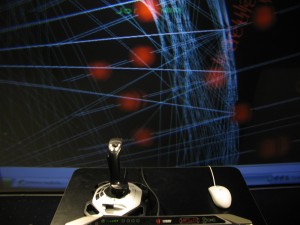Lynne pointed me to a blog entry by SSHRC’s Gisèle Yasmeen on “Technopreneurship” and social innovation.
Canada has a grand history of involvement in developing technopreneurs, and not just in the video-game and hand-held device industry. Indeed, Canada has one of the strongest “digital humanities” scholarly communities in the world, with many of these researchers becoming “technopreneurs” in their own right and working with partners across the public, private and not-for-profit sectors. Many of these scholarly “technopreneurs” had their work incubated by SSHRC in the Image, Text, Sound and Technology (ITST) funding program which began in at the beginning of this millennium. Recently, SSHRC awarded one of its Major Collaborative Research Initiatives to a consortium of 35 digital humanities researchers and 21 partner agencies under the leadership of Ray Siemens at UVIC — an indication of how mature this type of activity has become.
Technopreneurs are those who develop new information and communication ideas. I would like to say that they don’t necessarily commercialize their innovations, but see innovation as a human and social enterprise. The digital humanities are more about the gift of innovation than profit.







